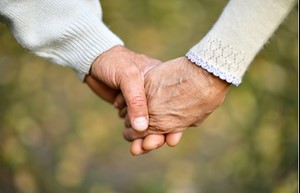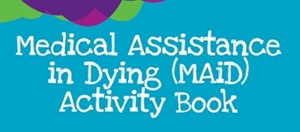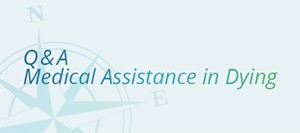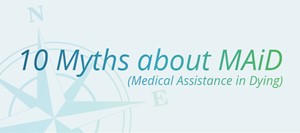A medically assisted death
“I was always afraid of death, of seeing a dead body. But seeing her comfortable, made me comfortable.”
“It may sound weird, and it was hard, but I found it beautiful.”
“I was not aware it would be so peaceful, positive and affirming.”
When the scheduled day arrives, it is natural to have many different feelings. It is natural to feel both the sadness of saying goodbye and the relief that suffering will end. It is hard knowing this is the last time to be physically together. The day may have unfolded as planned, or things may have changed about what was wanted or what was possible.
Read more
One of the MAiD practitioners will arrive at the arranged time. They may be accompanied by a nurse and/or a social worker or other MAiD team members. Although the MAiD practitioner will have explained at the assessments what to expect, when they arrive at the scheduled date and time, they will review this information again for the person and anyone else present and answer any questions. They will meet alone with the person and ask them if they still want to have an assisted death at this time and will ask for consent to proceed (unless the person has lost the ability to consent, and a Waiver of Final Consent has been completed). They will give the person an opportunity to change their mind about having an assisted death, or if they would like to change the date.
Be sure to let the MAiD practitioner know about any special requests such as music, prayers, smudging, readings or other rituals so that they can honour the person’s wishes as they provide the assisted death.
Read more
Once the person has consented to go ahead, the MAiD practitioner will often move to a different room or space to complete paperwork and get the medications ready. The MAiD practitioner or a nurse will insert a needle into the vein (IV). The person and those present will be given privacy if they wish to say their final goodbyes. The MAiD practitioners will help those present be in the positions the person would like, eg. lying next to them, holding hands, in sight or out of sight.
Whenever the person is ready the MAiD practitioner will ask again if they want to go ahead and if they do, they will begin to put the medications through the IV:
- The first drug deeply relaxes the person and they begin to lose consciousness. Sometimes the person will mumble something that can’t be understood. Some people snore or yawn or take one or two big breaths.
- The second drug puts the person into a deep coma. Often the mouth will fall open as the jaw muscles relax.
- The third drug stops their breathing and heart, and results in death. Because they are in a coma, they are not aware of their heart and lungs stopping. The person will not lose control of their bowels or bladder, and the colour will slowly fade from their face and body.
Even if it appears that the person has died, all the drugs will be given. The MAiD practitioner will listen for heart sounds with their stethoscope and let those present know that the person has died. The body will become cool to the touch and the color of the body will change as time passes.
It usually takes between 5 and 20 minutes to give all the medications, and for the heart to stop. Many people die in the first few minutes because they are so ill.
Although those who provide MAiD do their best to prepare those present for the sudden change in the person from being alert to no longer alive, some people are surprised by how quickly the person dies. Most assisted deaths have been described by healthcare professionals and families who have been present as painless and peaceful.
Although it is legal in Canada to have a self-administered medically assisted death (where the person takes prescribed medication by mouth themselves), this is still rare in Canada. In many provinces and territories, the only type of assisted death that is available is where the physician or nurse practitioner gives the medications through IV.
The MAiD team is there to support those present immediately after the person has died. They can call the funeral home if you wish, and they will complete the Death Certificate and the necessary paperwork.
After the person dies, you may want to take time to reflect or say a few words. Some people may want to touch the body and others may not. Some may cry loudly, and some may be silent. Some may need to leave the room while others want to spend time with the body.
There is no rush to let health care providers or funeral home staff have access to the person’s body. There may be religious, spiritual, or cultural rituals that need to be observed at this time, and it is important to spend as much time you would like or need. An assisted death involves a lot of preparation. It provides an opportunity to say goodbye before the death occurs and many families and friends don’t feel the need to spend as much time with the body as might happen with other deaths.
Spend as much or as little time as you wish. Do what feels right for you.
The moments after the death can seem unbelievable. The whole situation may feel unreal, and difficult to grasp. Even if you think you have prepared yourself, it is normal to feel intense emotions when someone close to you has died. You might also feel numb and “in a daze”.
Sometimes people worry about how they will react at the assisted death. They fear that they might lose control, or that they may not be able to handle the situation. Remember, we are human beings and when we are hurting, we express our pain in whatever way fits for us.
It is not uncommon to feel a sense of relief when someone who has been seriously ill dies. It is normal to have wanted the person you care about to finally be free from suffering, and to want to begin to think about getting some order back into day-to-day life. There is no right or wrong way to respond or feel.
Our society places a high value on holding ourselves together as a way of being “strong.” This is misguided. In fact, one of the strongest things we can do is allow ourselves to feel and express our emotions - this is not a sign of weakness. Similarly, not showing emotion does not mean we don’t have feelings. People who don’t show emotion may be feeling overwhelmed or even stunned that the death has actually happened or find it hard to express emotion in front of others. They may process situations more through thoughts than feelings. We do what we need to do, when and how we need to do it.
Videos
More Articles

What is MAiD?
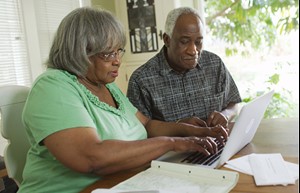
The application process for MAiD

Why do people consider MAiD?

Telling family and friends
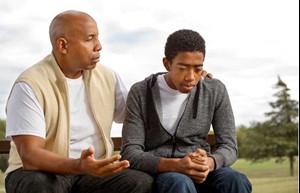
Talking to children and youth about MAiD
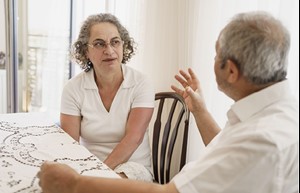
Starting a conversation about MAiD with the person who is ill

Seeking information and starting the process

Capacity and consent and why they are important

Having the assessments

Choosing when and where

Planning for the time left
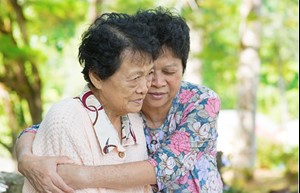
Planning the day of MAiD

Grief after a medically assisted death

For healthcare providers


